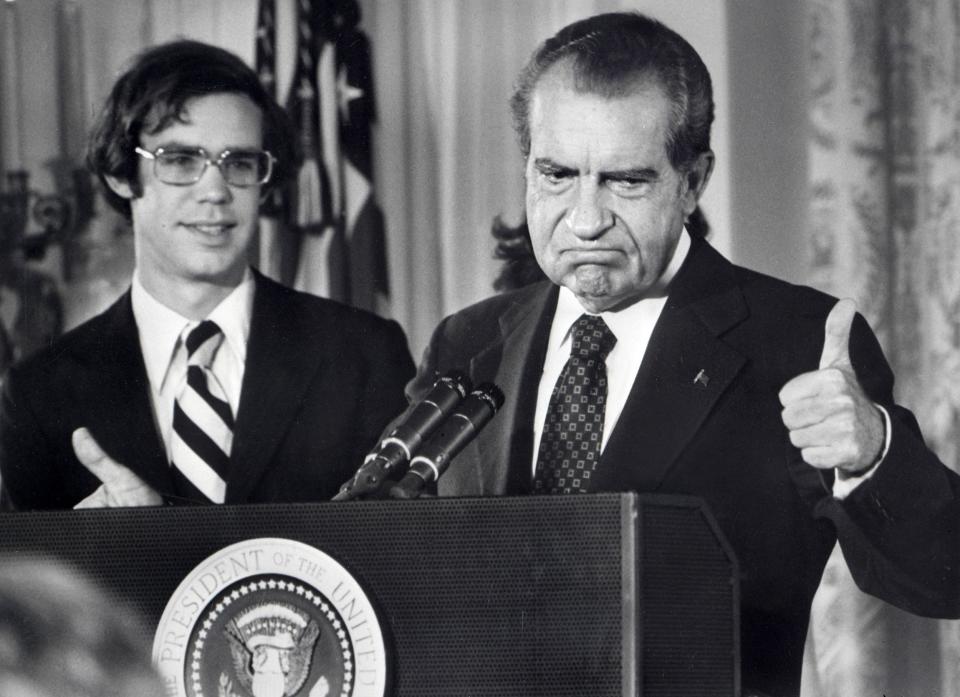What are the requirements to be president? Qualifications to be the Commander-in-Chief
When you were a kid, you might have said, "I want to be president when I grow up." But if you're still considering taking on the job, you will have to know what it takes to run for the highest office in the land.
The president of the United States is "responsible for implementing and enforcing the laws written by Congress and, to that end, appoints the heads of the federal agencies, including the Cabinet," according to the White House.
But it takes more than just wanting the job to become Commander-in-Chief. Here are the requirements to be president of the United States, as well as other facts about the executive branch.
What are the requirements to be president?
According to Article II of the Constitution, there are three requirements in order for someone to qualify for the presidency:
Must be at least 35 years old
Be a natural-born citizen of the U.S.
Must have lived in the U.S. for at least 14 years
How is the president elected?
In order to be elected president of the U.S., a candidate must receive at least 270 electoral votes, according to usa.gov. This amount is more than half of all the electors in the nation since the Electoral College consists of 538 electors, according to the National Archives.
In 48 states and Washington D.C., the winner of the statewide vote receives all the electoral votes for the presidency. Maine and Nebraska have a proportional system and assign their electors based on this.
The presidency is not decided by the popular vote of the nation, and it is possible to win the popular vote but lose the Electoral College. This occurred in the 2016 presidential election, the 2000 presidential election and three presidential elections in the 1800s.
If no candidate receives a majority of the electoral votes, the decision of who becomes president goes to the House of Representatives. The House then picks the new president from the top three candidates, while the Senate elects the vice president from the remaining top two candidates.
This scenario happened in 1824, when John Quincy Adams was elected president.

Who becomes president if the current president is unable to perform duties?
The vice president assumes the presidency if the president is unable to perform their duties, according to the White House. This can occur for various reasons including:
President's death
President's resignation
President's temporary incapacitation
If the vice president and a majority of the cabinet deem the president is no longer able to perform the duties of the presidency
Of the 15 vice presidents who went on to become president themselves, eight succeeded into office due to the prior president's death, according to the U.S. Senate
John Tyler (10th President), succeeded William Henry Harrison
Millard Fillmore (13th President), succeeded Zachary Taylor
Andrew Johnson (17th President), succeeded Abraham Lincoln
Chester A. Arthur (21st President), succeeded James A. Garfield
Theodore Roosevelt (26th President), succeeded William McKinley
Calvin Coolidge (30th President), succeeded Warren G. Harding
Harry S. Truman (33rd President), succeeded Franklin D. Roosevelt
Lyndon B. Johnson (36th President), succeeded John F. Kennedy
Currently, Gerald Ford is the only president to assume the role due to the resignation of his predecessor Richard Nixon, who was the first and only president of the United States to resign from office.
One-term presidents: Trump joins the list of presidents denied a second term
Just Curious for more? We've got you covered
USA TODAY is exploring the questions you and others ask every day. From "What are the three branches of government?" to "How much does the president make?" to "Is Election Day a federal holiday?" – we're striving to find answers to the most common questions you ask every day. Head to our Just Curious section to see what else we can answer.
This article originally appeared on USA TODAY: Requirements to be president of the US: Here's what you need to know.
